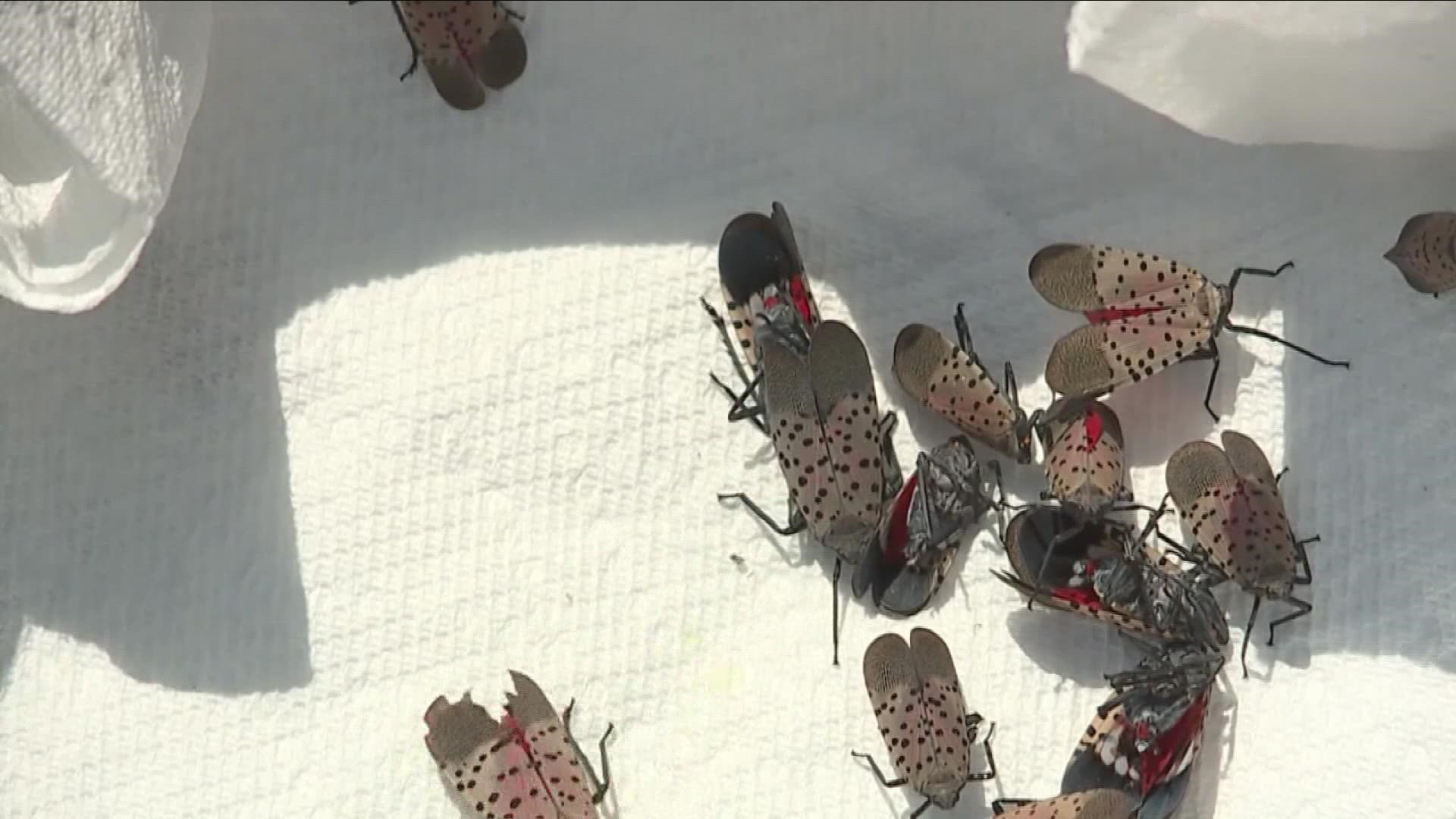YORK, Pa. — Mid-May into June is when lanternflies start to hatch. In some areas, they have already started, like the Baltimore and D.C. area.
The eggs were laid last year during the fall, but the good news is that there’s only one generation yearly. Experts urge people to get ready to start squishing.
“All the eggs that are hatching now will hatch out and develop all through the summer and then the adults will lay eggs then freeze and die, which continues the cycle again,” said Brian Walsh, a spotted lanternfly researcher at Penn State Extension.
Although they don’t bite, aren’t venomous and don’t cause any structural damage to buildings, lanternflies significantly impact vineyards. According to Penn State Extension, spotted lanternflies utilize the nutrients provided by the plant and also rely on bacteria in their guts to help digest sap. When the spotted lanternflies feed in high numbers on grapevines, photosynthesis and sap flow in the plant are reduced.
The way to deal with lanternflies now is to squish them before and after they hatch, as well as use pesticides and insecticides. Another way to prevent them from invading other regions is to properly check and clean your car before crossing state lines.
“I’ve seen some people do bad things with good intentions,” said Walsh. "We do not recommend home inventive pesticides; we do not recommend petroleum products if you’re going to use a pesticide. Use something that is EPA registered, that you buy at the store."
As for a long-term solution, this is currently in the works. Researchers are trying to find a native predator for the spotted lanternflies that won’t cause any risk to other native species in the area. Back in the 1980s, a native predator for spongy moths was brought in but soon started attacking native butterflies.
“It is long-term in the works, and if it’s to happen there may be that we bring a predator in from its home range… and there are people in the USDA that are studying this; they have to make sure that if they were to bring one of its native predators in here that it’s going to stay on target and not go after our natives,” said Walsh.

